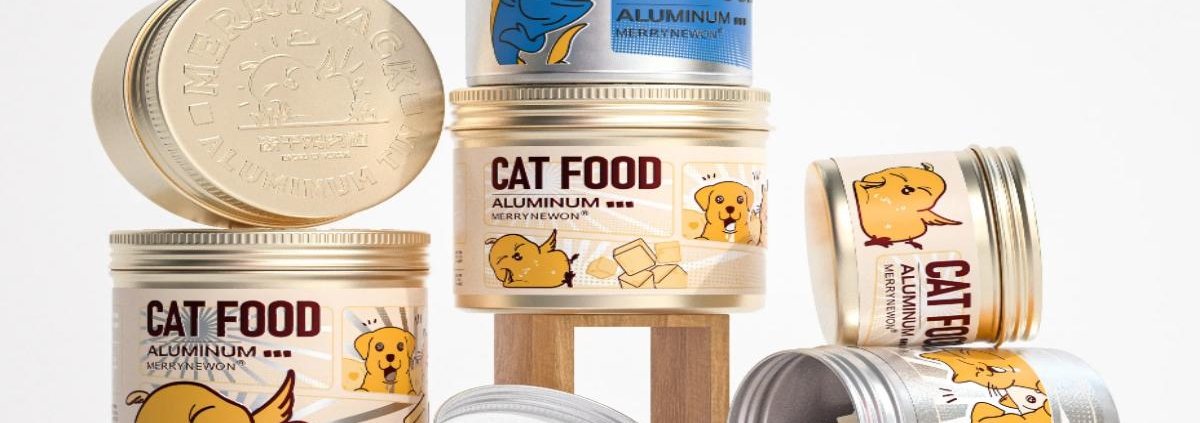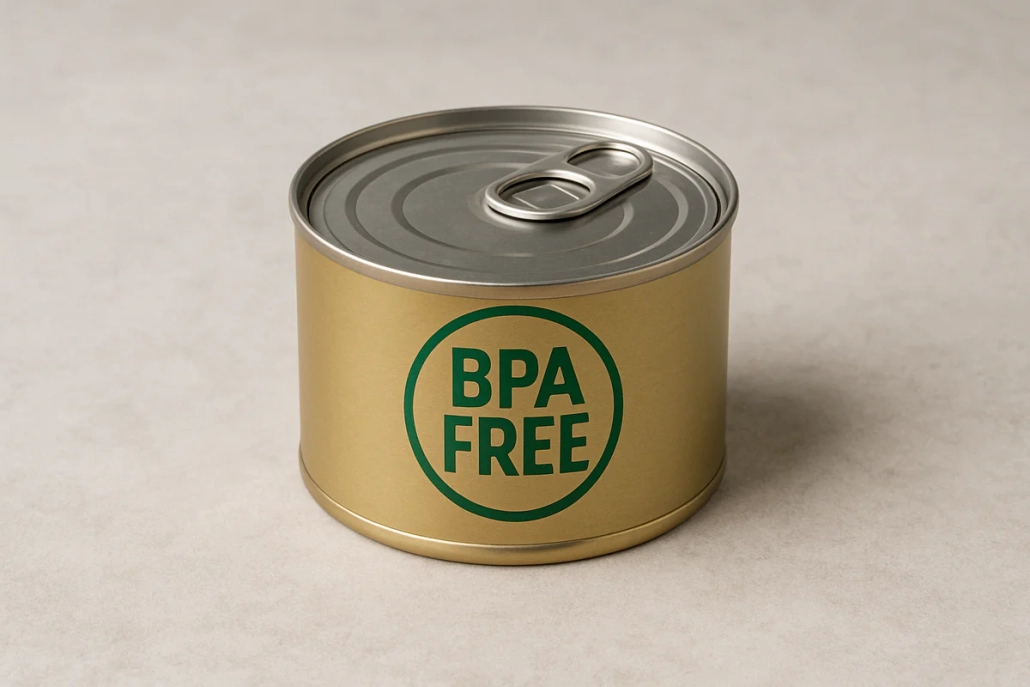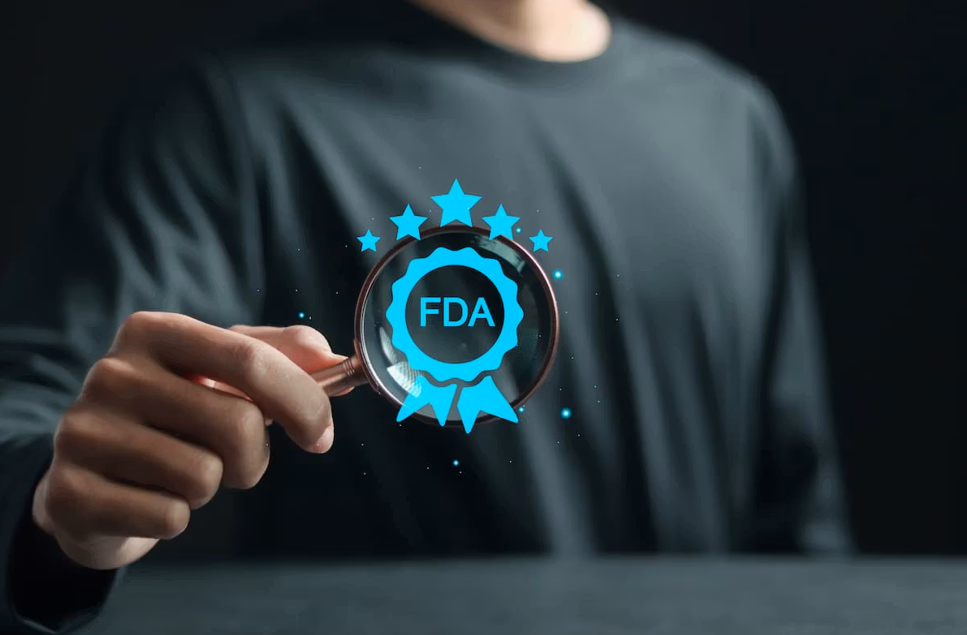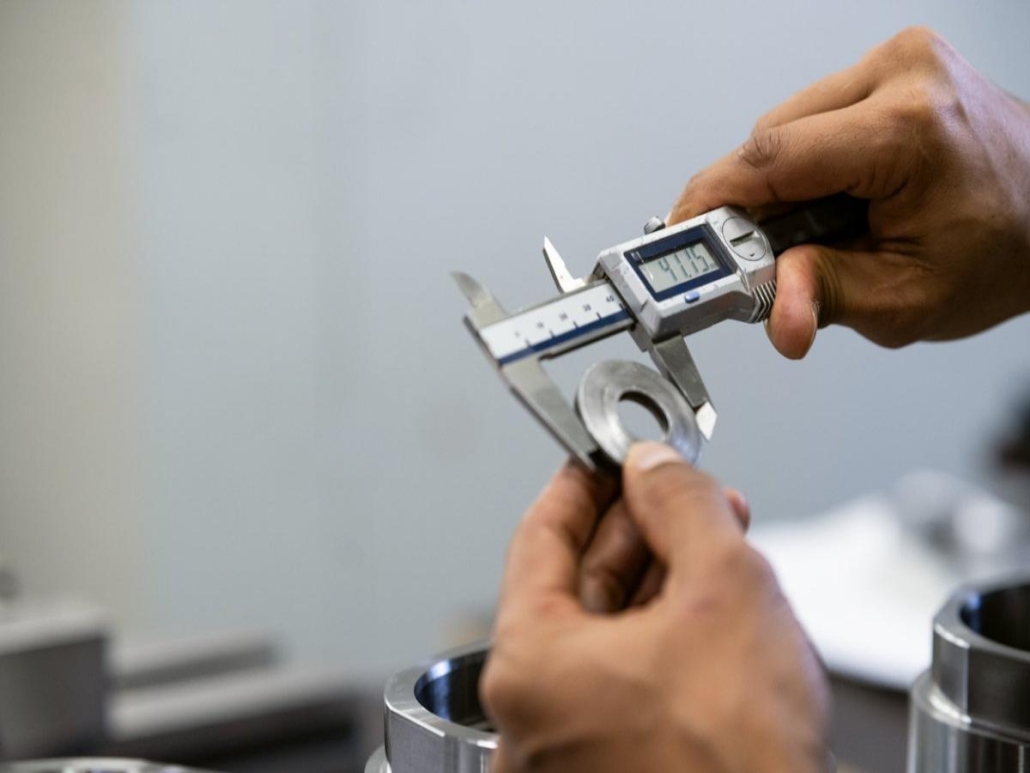Food-grade custom tin cans: Choose BPA-free coatings and food-grade inks
Many customers check for “BPA-free” or “food-safe” claims on canned goods before purchasing them. This behavior is even more telling: consumers report that if they learn a brand’s custom tin cans use non-food-grade materials, they will stop buying them due to concerns about chemicals leaching into the contents. As a tin can manufacturer, we understand how this concern can influence purchasing decisions, especially for brands that position their custom tins as “giftable” or “reusable.” Tisng’s food-grade custom tin cans feature two non-negotiable safety features: a BPA-free interior coating and food-safe printing inks certified to global standards such as the US FDA and UK LSGB.
Why is a BPA-free coating essential for food-grade custom tin cans?
First, let us explain why BPA is a significant concern in custom tin cans and why Tisng’s food-grade custom tin can are completely BPA-free. Studies have shown that BPA, a chemical once common in plastic and metal coatings, can pose potential health risks by leaching into food or beverages, especially when they are exposed to heat or acid. For custom tin cans, the inner coating acts as a barrier between the tinplate metal and the product. Without a safe coating, the metal itself could react with the contents or release trace amounts of metals. Tsing’s food-grade custom tinplate cans feature a BPA-free epoxy phenolic coating, specially formulated to create a durable, non-reactive barrier. This provides your brand with:
No chemical leaching: The coating will not transfer BPA or other harmful substances to your product, even when the can is stored in a warm environment or contains slightly acidic contents.
Protecting the metal and contents: The coating prevents rusting and blocks the contents from reacting with the metal.
Compliant with Global Standards: Our BPA-free coating complies with FDA 21 CFR Part 175 (US) and EU Regulation (EC) No. 10/2011, which is crucial for customers in North America or Europe.
Food-safe inks are FDA and LSGB-certified
Printing on custom tins is not just for aesthetics; using non-food-grade inks can pose a safety risk. Even if the tins contain non-food products (such as candles), consumers often reuse them for food (for example, placing cookies in a decorative candle tin). This means that ink from the inside and outside of the tins could potentially transfer to food—hence, all Tisng food-grade custom tins must use food-safe inks.
Tisng utilizes solvent-free food-safe printing inks certified to two stringent standards:
FDA Title 21 CFR Part 176: Ensures that inks contain no harmful substances that could migrate into food, even when the tins are exposed to heat or humidity.
LSGB: A global benchmark for food contact materials, requiring inks to pass rigorous migration testing.
In addition to safety, these inks offer two key advantages:
Vibrant, long-lasting colors: They will not fade due to sunlight or hand contact, so your custom designs stay legible for months.
No odor: Unlike solvent-based inks, our food-safe inks are odorless, which is crucial for scented products like candles or gourmet snacks, where odors can ruin the experience.
One bakery client uses Tsing’s food-grade custom tins to package their cookie gift sets and prints their logo with our FDA-approved inks. They report that 82% of surveyed customers reuse these tins for baked goods, bolstering the brand’s reputation for sustainability.
Tsing’s quality control processes ensure consistency in every batch.
Food safety isn’t just a one-time check; it requires rigorous quality control (QC) at every stage of production. Tsing’s custom tin cans undergo five key quality control steps to ensure the proper use of BPA-free coatings and food-safe inks:
Raw Material Inspection: We test each batch of coating and ink for BPA content and compliance before it enters our factory, and we reject any material that does not meet FDA/LSGB standards.
Coating Thickness Inspection: The BPA-free inner coating must be 12-15 microns thick. We use a laser thickness gauge to verify this thickness on 10% of the tins in each batch.
Ink Adhesion Testing: We wipe the printed tins with a damp cloth to ensure the ink does not flake, which is crucial to prevent ink from staining hands or food.
Final Visual Inspection: Each can is inspected for coating defects and ink smears before shipment. Only tins that pass 100% of the inspection are shipped.
This process ensures consistency, so every customer who orders food-grade custom tin cans from us can be confident that the last can in the batch is as safe as the first. As one customer put it, “We don’t have time to test every jar, and we need to be sure Tisng’s quality control supports us. Their reports give us peace of mind.”
Who Benefits Most from BPA-Free Coatings and Food-Safe Inks?
While all brands can benefit from food-safe custom can tins, there are specific situations where BPA-free coatings and food-safe inks are crucial. Here are some key industries and applications for Tisng’s food-grade custom can tins:
Edible Product Brands: Bakeries, confectioners, tea/coffee companies, and spice brands—anyone whose tins come into direct contact with food. Our BPA-free coating prevents odors, and our food-safe inks eliminate the risk of transfer.
Gift Set Brands: Brands that pair non-edible products with food or market their tins as “reusable for food.” Consumers expect these tins to be safe for storage.
Eco-Friendly Brands: Reusable tins are key to sustainability, but only if they can be safely reused. Tisng’s food-grade custom tins allow brands to achieve “zero waste” marketing without compromising safety.
A Canadian maple syrup brand uses food-grade custom tins from Tisng for its 8-ounce gift tins. The BPA-free coating prevents the syrup from reacting with the tin, while the FDA/LSGB-compliant inks enable seamless sales in Canada and the US.
How can you verify a supplier’s food safety claims?
Not all suppliers claiming “food-grade custom tin cans” actually use BPA-free coatings or certified inks. As a brand, you need to know how to ask the right questions to mitigate risks. Tisng recommends verifying the following information with any supplier:
Request certification documents: Request copies of FDA 21 CFR Part 175 and LSGB certificates for coatings and inks. Tisng provides these documents upfront and will not falsify them.
Request migration test reports: Independent laboratory reports verify that no chemicals leach out of the jars. Avoid suppliers who say, “We don’t have reports” or “Our materials may meet the requirements.”
Ask about quality control processes: Suppliers with robust quality control systems, such as Tsing’s five-step process, are more likely to provide consistent safety. Avoid suppliers who can’t explain how they check for BPA or ink compliance.
Tsing makes this easy. When you order large quantities of our custom food-grade tin cans, we provide samples and include copies of all certification documents for testing and verification. Please ensure you review these documents before placing your order.
Safety builds brand trust
At Tsing, our custom food-grade tin cans feature a BPA-free coating and FDA/LSGB-certified inks. These not only meet regulatory standards but also meet the high expectations of today’s consumers, supporting brands with transparency and safety. Whether you are selling gourmet snacks, gift candles, or artisanal teas, these features ensure your custom tins protect your products, your customers, and your brand.





 Facebook
Facebook Twitter
Twitter Linkedin
Linkedin
